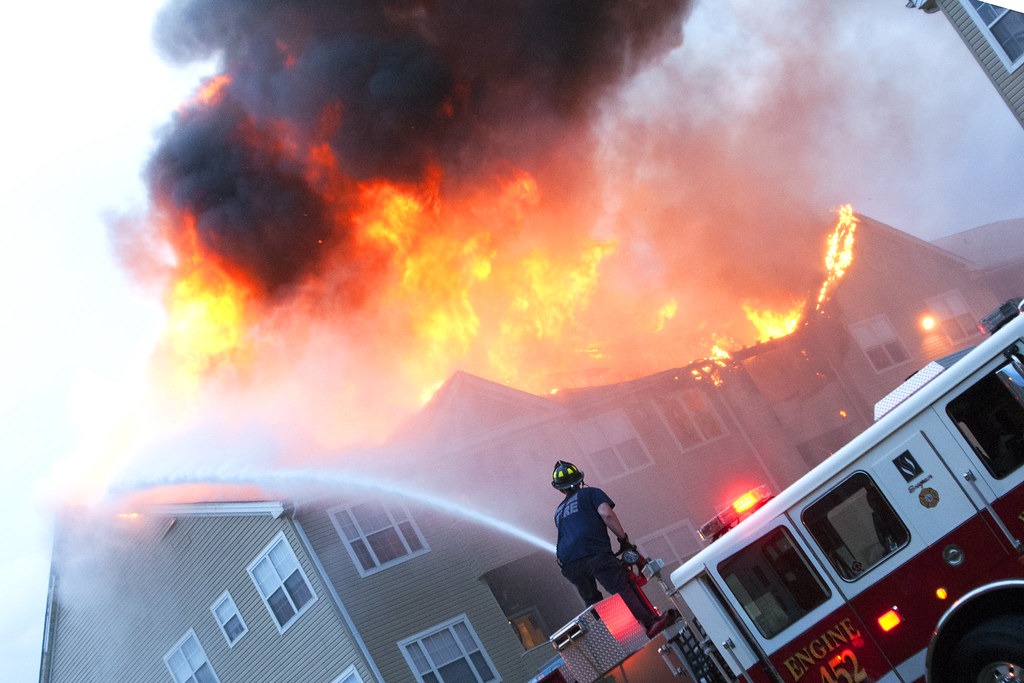Introduction
Business insurance for small business owners isn’t just a formality, it’s essential protection for everything you’ve worked so hard to build. From property damage and employee accidents to client lawsuits and unexpected setbacks, small businesses face real risks every day.
Whether you’re a coach, consultant, self-employed professional, or running a storefront, having the right coverage can protect your future and give you peace of mind.
In this guide, we’ll walk you through everything you need to know about choosing, buying, and managing small business insurance in the USA—so you can stay focused on growing what matters most.
What is Business Insurance for Small Business Owners?
Business insurance for small business owners is a broad term that includes several types of policies designed to protect a business’s assets, employees, and operations from financial losses. It acts as a financial safety net, providing support when unexpected events occur.
Without proper insurance, even a small incident could threaten your entire business. Small business insurance coverage typically includes protection against property damage, legal liabilities, employee-related risks, and even cyber threats in some cases. For instance, if a fire damages your office, hazard insurance will cover the repair costs.

If a customer sues you for injury sustained on your premises, your general liability insurance steps in to pay for legal fees and settlements. Business insurance for small business owners also covers more specific needs through specialized policies like professional liability insurance for consultants or plumbing liability insurance for contractors.
Understanding these different forms of insurance and how they work together is essential for building a strong foundation for your business. In a landscape where lawsuits, accidents, and unexpected events are common, insurance is not just smart,it is necessary for survival.
Why Business Insurance for Small Business Owners Is Essential
Running a small business is rewarding—but it comes with serious risks. That’s why business insurance for small business owners is not a luxury, it’s a necessity. From unexpected lawsuits to property damage and client disputes, insurance protects your business from events that could otherwise be financially devastating.
Small Businesses Face Unique Vulnerabilities
Small businesses often operate with limited capital, fewer staff, and tight profit margins—making them more vulnerable to:
- Customer injuries on business premises
- Property damage from fire, theft, or natural disasters
- Claims of negligence or poor service
- Business interruptions due to unforeseen events
Without proper business insurance for small business, even one of these incidents could wipe out your savings or close your doors permanently.
Liability Insurance Covers Accidents and Lawsuits
Let’s say a customer slips and falls inside your store. Without small business liability insurance, you’d be responsible for:
- Medical bills
- Legal fees
- Compensation claims
Business insurance for small business owners offers a financial safety net that helps you recover and continue operating.
Consultants and Coaches: You Need Professional Liability Too
If you’re a coach, consultant, or service provider, professional liability insurance (also called errors and omissions insurance) protects you from:
- Claims that your advice or service caused a financial loss
- Costly lawsuits—even if you did nothing wrong
- Damage to your professional reputation
Having business insurance for small business professionals is key to staying protected and trusted.
Insurance Builds Confidence and Opens Doors
Many landlords, clients, and vendors require businesses to provide proof of insurance before signing contracts or leases.
Having the right coverage:
- Builds trust with clients
- Shows you’re serious about your business
- Positions you as a reliable service provider
Hazard Insurance Helps You Bounce Back After Disasters
What if a fire destroys your inventory? Or a storm damages your equipment? Small business hazard insurance helps you recover by covering:
- Repair and replacement of property
- Damage from fire, theft, vandalism, and natural disasters
- Temporary shutdown costs
With the right business insurance for small business owners, you don’t have to start over, you can bounce back faster.
Final Thought
In today’s unpredictable world, operating without business insurance for small business owners is like driving without a seatbelt. One unexpected turn could be catastrophic.
Protect your dream, your hard work, and your future—by getting the right coverage in place today.
Types of Small Business Insurance Coverage
Choosing the right small business insurance coverage is essential to protecting your company from financial loss. Whether you’re a consultant, retailer, or contractor, understanding the types of coverage available can help you build a strong safety net.
General Liability Insurance (Must-Have for Most Businesses)
This is the foundation of most small business insurance plans.
General liability insurance protects you from claims related to:
- Bodily injury (e.g., a customer slips on your premises)
- Property damage (e.g., you accidentally break a client’s equipment)
- Advertising injury (e.g., slander or copyright infringement)
Why it matters:
If you’re just starting out, this is often the first policy you should get—it covers the most common risks.
Professional Liability Insurance (Errors & Omissions)
Ideal for consultants, coaches, freelancers, and service providers, this policy covers:
- Claims of negligence or poor advice
- Financial harm to clients from your services
- Legal fees and court costs, even if you’re not at fault
Even if you did everything correctly, legal defense costs alone can be devastating. This policy offers peace of mind.
Business Owner’s Policy (BOP)
Think of a Business Owner’s Policy as a cost-effective bundle. It typically includes:
| Coverage Type | Included in BOP? |
|---|---|
| General Liability | ✅ |
| Commercial Property | ✅ |
| Business Interruption | ✅ (sometimes) |
Best for:
Small retail shops, cafés, and professional offices that want broad protection without juggling multiple policies.
Commercial Auto Insurance
If your business uses vehicles, personal auto insurance won’t cut it.
Commercial auto coverage includes:
- Accidents that happen during work deliveries or site visits
- Liability for third-party injuries and damages
- Protection for vehicles owned or leased by the business
Contractor’s Risk Insurance
Perfect for businesses in construction or renovation, this policy covers:
- Buildings under construction
- Tools, equipment, and materials on-site
- Weather-related and accidental damage during projects
Small Business Hazard Insurance
Also called property insurance, this protects your physical assets from:
- Fire and smoke damage
- Theft or vandalism
- Natural disasters (e.g., storms or floods)
Industry-Specific Insurance (Tailored Protection)
Some businesses need customized coverage based on their operations:
- Restaurant Insurance: Covers kitchen fires, food spoilage, liquor liability
- Supermarket Insurance: Includes inventory spoilage, equipment breakdowns, customer slip-and-falls
Summary: Which Insurance Do You Need?
| Business Type | Recommended Coverage |
|---|---|
| Freelancer/Consultant | Professional Liability Insurance |
| Retail Store or Café | BOP, General Liability, Hazard Insurance |
| Contractor | Contractor’s Risk Insurance, Commercial Auto |
| Restaurant Owner | Restaurant Insurance, BOP, Liquor Liability |
| Supermarket Owner | Supermarket Insurance, Hazard Insurance |
By mixing and matching the right types of business insurance for small business owners, you can protect everything you’ve built—from your storefront to your reputation.
How to Choose the Right Insurance Plan for Your Small Business
Choosing the right business insurance for small business owners may feel intimidating, especially if you’re not familiar with insurance terms. But think of it like choosing a safety net, one that fits your unique business, protects what you’ve built, and helps you recover when life throws you a curveball.
Let’s break it down step-by-step with simple language, relatable examples, and practical tips.
Step 1: Identify Your Business Risks
Start by asking: What could realistically go wrong in my daily operations?
Here are examples by industry:
| Type of Business | Common Risks |
|---|---|
| Consultant | Client sues over advice → need for professional liability insurance |
| Coffee Shop Owner | Fire destroys stock → need for commercial property insurance |
| Contractor | Worker injured on-site → need for workers’ compensation insurance |
| Online Retailer | Cyberattack steals customer info → need for cyber liability insurance |
| Delivery Service | Vehicle accident during delivery → need for commercial auto insurance |
➡️ Tip: List 3–5 things that could go wrong in your business. Each risk points to a type of small business insurance you may need.
Step 2: Know the Legal Requirements
Depending on where you operate and what you do, some insurance is legally required.
Here’s a quick guide:
| Requirement | When It Applies |
|---|---|
| Workers’ Compensation | If you have employees (required in most states) |
| General Liability | Often required when signing commercial leases or contracts |
| Professional Liability | Required in licensed professions (law, finance, health, etc.) |
➡️ Tip: Failing to meet legal insurance requirements could lead to fines or a temporary shutdown.
Step 3: Get and Compare Multiple Insurance Quotes
Don’t settle for the first quote! When reviewing small business insurance quotes, compare:
- ✅ Premium – what you’ll pay monthly or annually
- ✅ Coverage – what’s included (e.g., property damage, lawsuits, loss of income)
- ❌ Exclusions – what’s not covered
- 📊 Policy limits – maximum payout in a claim
Here’s a simple comparison table:
| Insurance Company | Monthly Premium | Includes Legal Defense? | Coverage Limit | Notable Exclusion |
|---|---|---|---|---|
| Company A | $75 | ✅ Yes | $1M per claim | Cyber attacks |
| Company B | $50 | ❌ No | $500K total | Property theft |
| Company C | $90 | ✅ Yes | $2M per year | Employee claims |
➡️ Tip: A cheaper policy isn’t always better. You don’t want to find out you’re underinsured after a claim.
Step 4: Work with a Knowledgeable Insurance Agent
Insurance jargon can be confusing, but you don’t have to figure it out alone.
A good agent can:
- 📌 Recommend coverage based on your industry and size
- 💬 Explain confusing terms like Claims-Made vs. Occurrence Coverage in plain English
- 🛡️ Help you avoid common mistakes that leave gaps in protection
➡️ Example: You’re a freelance graphic designer. A great agent might suggest professional liability insurance in case a client claims your work caused financial loss.
Step 5: Review and Update Your Coverage Annually
Your business isn’t static, neither should your insurance be. Review your policy once a year, especially if:
- ✅ You’ve hired more staff
- ✅ Your annual revenue has increased
- ✅ You’ve moved locations
- ✅ You’ve added new services or products
➡️ Tip: Schedule a yearly check-in with your insurance agent to stay covered as your business grows.
Final Word: Protect More Than Just Your Business
The right business insurance for small business owners protects more than property or income, it protects peace of mind. With the right plan in place, you’re free to focus on growing your business, knowing you’re prepared for the unexpected.

What Affects the Cost of Business Insurance for Small Business Owners?
If you’re a small business owner trying to make every dollar count, understanding what drives your business insurance costs can help you budget smarter, and maybe even save money in the long run.
Let’s break it down into bite-sized pieces with real-life examples and simple comparisons.
1. Type of Business You Run
Your industry is one of the biggest pricing factors. Insurers look at how likely it is that something could go wrong, and how expensive that risk might be.
| Business Type | Risk Level | Why It Matters |
|---|---|---|
| Construction Company | High Risk | Accidents, injuries, and property damage are common |
| Restaurant or Food Truck | High Risk | Food poisoning, fire, and slip-and-fall risks |
| Online Freelance Designer | Low Risk | Low chance of physical damage or injury |
| Accountant or Consultant | Low/Moderate | Risk mostly comes from giving advice (professional liability) |
➡️ Tip: The more hands-on, physical, or public-facing your work is, the higher your small business insurance premiums are likely to be.
2. Size of Your Business
Larger businesses = more moving parts = more risk.
Here’s how size can affect small business insurance costs:
- 👔 More employees = higher chance of workplace injuries (→ workers’ compensation)
- 💰 Higher revenue = greater financial risk if sued (→ higher liability coverage needed)
- 🚛 More assets = more to insure (e.g., equipment, vehicles, inventory)
➡️ Example: A boutique bakery with 10 staff and delivery vans will pay more than a solo cupcake creator working from home.
3. Business Location
Where you operate has a direct impact on your premium:
| Location Risk Factor | Impact on Insurance Costs |
|---|---|
| High-crime area | Increases risk of theft, vandalism, or break-ins |
| Natural disaster zone | Raises risk of floods, fires, or hurricanes |
| Shared commercial space | May lower costs if building already has fire protection |
➡️ Tip: If you’re renting office space, ask if the building has security systems or disaster-resistant infrastructure. It could impact your small business insurance quote.
4. Claims History
Insurance companies love predictability. If you’ve made several claims in the past, they may see your business as high-risk.
- 📉 Clean history → Lower premiums
- ⚠️ Frequent claims → Higher rates or limited coverage options
➡️ Example: If you filed two theft claims last year, insurers may raise your rates or require a higher deductible.
5. Coverage Limits and Deductibles
This is all about how much coverage you want and how much risk you’re willing to shoulder yourself.
| Option | What Happens |
|---|---|
| Higher coverage limits | Better protection, but higher premiums |
| Higher deductible | You pay more out of pocket per claim, but lower monthly cost |
➡️ Tip: If cash flow is tight, consider a higher deductible. Just make sure you have savings to cover it if needed.
6. Insurance Provider You Choose
Not all insurers charge the same. Some specialize in specific industries and offer tailored (often cheaper) coverage.
Here’s what you can do:
- 🛒 Shop around and get multiple small business insurance quotes
- 🧠 Ask agents if they have experience in your industry
- 🧐 Review customer feedback and check if service is reliable when filing claims
➡️ Pro Tip: The cheapest quote isn’t always the best. Make sure it gives you real protection when it matters most.
Final Thought: Control What You Can, Plan for What You Can’t
While some small business insurance costs are outside your control (like your industry or location), others—like your claims history or deductible are areas where you can make smart choices.
Knowing what affects your premiums helps you make confident, informed decisions—and puts you in a better position to grow your business with peace of mind.
How to Get the Best Quotes for Business Insurance for Small Business Owners
Getting a quote for business insurance for small business owners doesn’t have to be complicated. With the right information and a clear process, you can secure coverage that protects your business without overpaying.
Here’s a step-by-step guide to help you do it right:
Step 1: Gather Key Business Info
Insurance providers need specific details to give you an accurate small business insurance quote. Before you begin, prepare:
- 📛 Legal business name
- 🏢 Type of business/industry
- 👥 Number of employees
- 💵 Estimated annual revenue
- 🏠 Property or equipment owned
- 🚚 Vehicles used for business (if any)
➡️ These details help insurers evaluate your risk profile and recommend the right type of business insurance for small business operations like yours.
Step 2: Know What Coverage You Need
Different businesses face different risks, so your insurance coverage should match your unique needs.
| Type of Coverage | Best For |
|---|---|
| General Liability Insurance | Slips, falls, third-party injury/property damage |
| Professional Liability | Consultants, coaches, service-based businesses |
| Commercial Auto | Businesses using cars or delivery vans |
| Property Insurance | Physical assets, inventory, or business premises |
| BOP (Business Owner’s Policy) | A cost-effective bundle for small businesses |
➡️ Tip: Not sure what you need? Start with a Business Owner’s Policy (BOP). It combines general liability and property coverage at a discounted rate.
Step 3: Shop Around for Quotes
To find the best value on small business insurance, don’t settle for the first quote you see.
Explore different sources:
- 🧭 Online marketplaces like CoverWallet or Simply Business
- 📞 Direct insurers like Next Insurance, Hiscox, and Progressive Commercial
- 🤝 Independent agents who understand your industry and local market
➡️ Pro tip: Use at least three different providers to compare pricing and coverage side by side.
Step 4: Compare Coverage Details (Not Just Price)
When reviewing quotes, don’t just look at the cost, dig into the fine print:
- ✅ What risks are covered?
- 🚫 Are there any exclusions that could leave you exposed?
- 📊 What are the coverage limits and deductibles?
- 🛡️ Does it include defense costs and settlement coverage?
- ➕ Are endorsements or add-ons needed for your industry?
➡️ Example: A cleaning business might need extra coverage for damage caused by chemical spills—don’t overlook those extras.
Step 5: Ask for Help If You’re Unsure
If the language is confusing or your industry has specific risks (e.g. construction, food services, or IT consulting), consider talking to a licensed small business insurance agent.
They can:
- Explain complex terms in plain English
- Identify coverage gaps
- Help you avoid under- or over-insuring your business
Step 6: Review Your Policy Annually
Your business isn’t static—and your business insurance needs shouldn’t be either.
Review your coverage whenever you:
- Hire employees
- Move to a new location
- Buy equipment or vehicles
- Add new services or products
➡️ Set an annual reminder to reassess your policy and request updated small business insurance quotes if needed.
Final Thought: Insurance Is Your Business’s Safety Net
Whether you’re just starting out or scaling up, getting the right business insurance for small business protection is one of the smartest moves you can make. Take the time to do it right, and you’ll sleep better knowing your hard work is covered.

Conclusion
Business insurance for small business owners is more than just another line item on your expense sheet, it is an essential investment in your company’s survival and growth. Without proper business insurance, you are gambling with everything you have built.
Whether you are seeking a small business liability insurance quote, professional liability insurance for consultants, or specialized supermarket insurance, finding the right protection is crucial. Start today by assessing your risks, comparing small business insurance prices, and securing a policy that fits your needs.
A few dollars a day in premiums could one day save your business from financial disaster. Take control now, protect your dreams, and give your business the strong foundation it deserves.
Frequently Asked Questions (FAQs)
Q. What type of insurance does a small business really need?
A. Most small businesses need at least general liability insurance to protect against third-party claims and property insurance if you own equipment or inventory. If you offer advice or services, professional liability insurance is essential too.
Q. How much does small business insurance cost per month?
A. On average, small business insurance costs between $30 to $100 per month, depending on your industry, size, location, and coverage needs. High-risk sectors like construction or food service may pay more.
Q. Can I get small business insurance as a sole proprietor?
A. Yes! Even if you’re a freelancer or solo entrepreneur, you can (and should) get business insurance for small business owners. Liability coverage protects you if something goes wrong with a client, product, or service.
Q. Is business insurance required by law?
A. It depends on your state and industry. Most states require workers’ compensation insurance if you have employees, and some may mandate certain coverage types for licensed professions like contractors.
Q. Where can I get a quote for small business insurance fast?
A. You can get quick quotes from online platforms like Next Insurance, Hiscox, and CoverWallet. They offer instant small business insurance quotes tailored to your business type and location.


14 Comments
Pingback: How to Choose the Best Professional Indemnity Insurance for Your Small Business - small business insured
Pingback: What Does Small Business Hazard Insurance Cover? - small business insured
Pingback: P&I Insurance: 7 Must-Know Facts for Maritime Business Owners in 2025 - small business insured
Pingback: Liability Insurance for Consultants: Cost in the U.S.
Pingback: Cut Business Insurance Costs With Pro Tips
Pingback: Why Professional Liability Insurance for Coaches Matters
Pingback: Why Small Businesses Needs Errors and Omissions Insurance
Pingback: What Does Small Business Hazard Insurance Cover?
Pingback: Small Business Auto Insurance Truths You Must Know
Pingback: Plumbing Liability Insurance Guide for Small Businesses
Pingback: Business Insurance For Electrical Contractors: Hidden Fees Exposed! - small business insured
Pingback: Cyber Liability Insurance for Small Business Guide
Pingback: Supermarket Insurance for Grocery: 2025 Guide
Pingback: Why Business Hazard Insurance Could Save Your Company Overnight! - small business insured